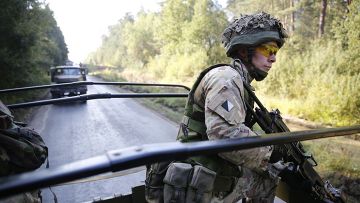
The West blames Vladimir Putin for the crisis in Ukraine. According to the analyst Turmud Haier, the question is whether the West should consider the Russia’s interests instead of boasting of its own ideals and values.
The main principle of regulating international conflicts consists in prevention of the tension increase and the useless escalation. It is for the best to follow that principle trying to look at the conflict from a position of the opposite side. Doing so will help the sides of a conflict find a solution that will allow them to ‘save the face’ and move on. From the middle of 1990’s the USA and the NATO refused to follow this principle. Instead, the Western values became more important that the real politics, especially to legalize the intervention into the domestic policy of other countries. Therefore, the fighting for democracy, human rights and the supremacy of law in Ukraine is considered as being more important than the Russia’s security interests.
The intervention in the domestic policy of Ukraine, where CIA’s agents, secretaries of state and senators wander in the Kiev’s government hallway, is the most outrageous example of a bad regulation of a crisis. That devil-may-care approach to the Russia’s security interests provokes the polarization of the relations between the East and the West, so the Ukrainian crisis transformed into a ‘zero sum game’: the influence of the USA and its allies, their presence in the former Soviet Republics is perceived as a direct menace to the stability and the security of Russia.
When the February Coup in Kiev was over (with the support from the West), Ukraine found itself in transition from the sphere of the Russian interests to the sphere of the Western ones. From the beginning of 1990’s the Americans have spent about $5 million on the undermining of Russia’s influence in Ukraine, according to the American political scientist John D. Mearsheimer. The assistant of the US secretary of state Victoria Nuland thought that the time to change the regime had come and more pro-West politician Arseny Yatzenuk was elected a new prime minister. Therefore, Putin was out of patience, as Russia’s most important neighboring country in a few years could become a trampoline for the movement of the NATO forces inside the near abroad countries.
The main cause of the Ukrainian crisis is the NATO’s expansion to the East in 1999, 2004 and 2009. Together with the EU’s expansion to the East, inclusion of the former member states of the Compact of Warsaw and the former Soviet Republics is the brightest expression of the Western strategy. This strategy means the inclusion of former enemies and Russia into the Western Europe. It is the only way for Europe to live in peace. Moreover, for Americans it is the chance to avoid involvement in wars where they will have to put things in order among the rival Europeans.
However, Russia is completely different from other European countries. The Russian culture, security and stability are based on the values distinct from the Western ones. Until then, when the Russian nation is built on a basis of the central government and control, when the considerable part of its population is ready to sacrifice the primary human rights in order to get stability and security, there will always be a necessity in the ‘strategic depth’ and responsive buffer states between the East and the West. Therefore, the Ukrainian crisis does not have anything in common with the great-power ambitions of Russia in the former Soviet Republics. It also does not have anything in common with the Putin’s leadership style or with the Russian arms.
The annexation of the Crimea and the intervention in the Eastern Ukraine suggests the involvement of the USA and its allies into the affairs of the country that Russia would like to control in political and military sense. Otherwise, the strategic distance between the rivals will be too short for Russia’s feeling safe as well as other European countries around Russia.
In Norway, the awkward actions of its allies in the crisis regulation on the South resulted in a strange paradox in the security politics on the North: on the one side the intervention of the West into the Russia’s neighboring countries helped Norway to get support in its call to ‘bring the NATO back home’ after many years of the operations outside the alliance’s area of responsibility. On the other side, its relations with Russia became cold. Therefore, even less important events and incidents on the North will not remain unnoticed by the Kremlin. Some tiny misunderstandings between the Russian and the Norwegian air and naval forces, according to Russia, will be considered as potential menaces to the security of the country. In other words, the cooling of the relations between the East and the West will bring Norway the limited space for any maneuvers. It is, probably, a good idea to listen to the Russia’s security interests instead of showing off the Western ideals.
Turmud Haier – analyst of the Staff College of the Norwegian Armed Forces.
http://inosmi.ru/world/20140922/223167364.html
Translated by E.Strelnikova, APIR Center

 October 27, 2014
October 27, 2014  Опубликовано в
Опубликовано в